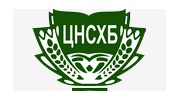The fight against hunger in the philosophy of Russian cosmism: N. F. Fedorov and Universal Cause collections
Oct 25 2024Gacheva A. G. The fight against hunger in the philosophy of Russian cosmism: N. F. Fedorov and Universal Cause collections // The Russian Peasant Studies. 2024. V.9. №3. P. 25-46.
DOI: 10.22394/2500-1809-2024-9-3-25-46
Annotation
The article is the first part of the study of the issues of hunger in the philosophy of Russian cosmism. Its representatives believed that we need to study natural processes and their management to solve the problem of hunger, emphasizing that regulation requires complete knowledge and universal solidarity. The article examines the ideas of N. F. Fedorov, who suggested to consider the issue of overcoming hunger in the Christian context, defining the regulation of nature as the fulfillment of the commandment to “possess land”. The author reconstructs the dynamics of the perception of the hunger problem in the first collection Universal Cause (1914) and in the draft of the second collection compiled by A. K. Gorsky and N. A. Setnitsky in 1920 during the devastation of the Civil War. The article also presents the results of the analysis of the one-day newspaper To the Rescue! published under the famine of 1921–1922.
Keywords
Philosophy of cosmism, problem of hunger, regulation of nature, legacy of N. F. Fedorov, A. K. Gorsky, N. A. Setnitsky, Universal Cause.
About the author
Anastasia G. Gacheva, DSc (Philology), Leading Researcher, A. M. Gorky Institute of World Literature of the Russian Academy of Sciences; Head of the Center for Cosmism Studies, Moscow School of Social and Economic Sciences; Chief Librarian and Researcher, N. F. Fedorov Library No. 180 in the South-West Administrative District of Moscow. 25A, bld. 1, Povarskaya st., Moscow, 121069.
E-mail: This email address is being protected from spambots. You need JavaScript enabled to view it.
Onosov A. A. Peasant question in the common cause philosophy // The Russian Peasant Studies. 2024. V.9. №3. P. 7-24.
DOI: 10.22394/2500-1809-2024-9-3-7-24
Annotation
The article presents the results of the explication and analysis of the “peasant question” as one of the semantic centers of N. F. Fedorov’s common cause philosophy. In its various formulations and analytical sections, the peasant question is an ideologically complex issue of cosmism, which combines multiple antinomies of being — urban and rural, present and due, secular (universal-philistine) and sacred (cosmic-peasant). The cause-and-effect analysis of the peasant question shows that its polysemantic nature is determined by the extreme ontological tension of the main nerve of the cosmism philosophy — issues of “life and death” in its moral-family form as issues of mortal sons who lost brotherhood and universal fatherland, and as issues of fathers awaiting bodily resurrection, a rebirth. The article identifies the supra-moralistic significance of the “bread labor” — various subject-life, planetary-cosmic expressions of agriculture in civilizational practices and projective goal setting of cosmosophy. The author emphasizes that in his deep retrospective and prospective historical analysis Fedorov clearly realized the peasant essence of the question of life and was a pure pragmatist of life as immortal and perfect for all sons of men, psychocratically integrated into the “adult society”.
Keywords
N. F. Fedorov, common cause philosophy, cosmism, supra-moralism, peasantry, peasant question, agriculture, village, regulation of nature, resurrection.
About the author
Alexander A. Onosov, PhD (Philosophy), Leading Researcher, Faculty of Philosophy, Lomonosov Moscow State University; Senior Researcher, Center for Cosmism Studies, Moscow School of Social and Economic Sciences; Associate Professor, Faculty of Humanities and Social Sciences, RUDN University. Lomonosovsky Prosp., 27–4, Moscow, 119991, Russia.
E-mail: This email address is being protected from spambots. You need JavaScript enabled to view it.























